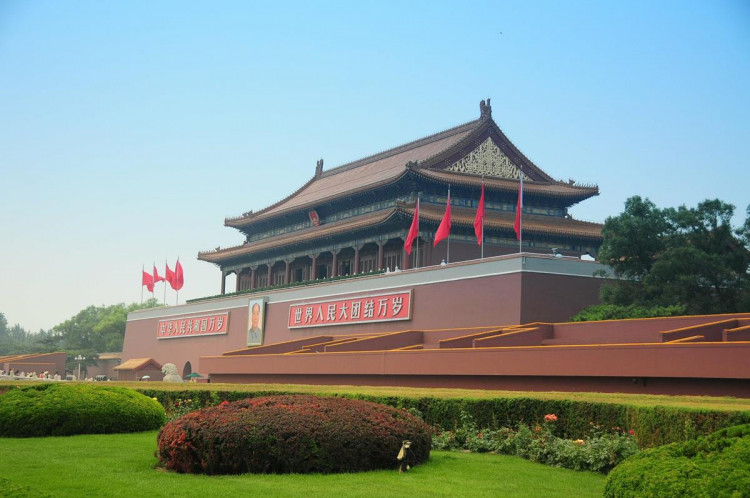Cities in China are imposing new lockdowns in response to new reported COVID cases in the country, just ahead of a major Chinese Communist Party meeting later this month.
China is one of the few countries that continues to impose harsh measures in an attempt to control COVID cases being reported in the country. Now, after the number of reported cases have tripled over the week-long holiday, cities are once again imposing lockdowns and travel restrictions to curb the spread.
According to Fox News, the latest lockdown in China has been imposed in Fenyang City, located in Shanxi province in northern China. Local state-run media CCTV reported that the lockdown started Monday after a positive case was discovered through city-wide testing.
On Tuesday, Hothot city, in the Inner Mongolia region, started prohibiting outsiders, both on foot and onboard vehicles, from entering. The city had recorded more than 2,000 cases in almost two weeks.
Shanghai also announced lockdowns in response to positive cases in the past week. As of Monday, cinemas and other entertainment venues in two districts in the city were shut down.
According to local authorities on Oct. 10, there were 34 active cases of COVID-19 in the city on Oct. 9. Three of these cases were symptomatic, meaning the people who were tested positive were showing symptoms of the infection. The remaining 31, on the other hand, did not show any symptoms at all.
Shanghai authorities were also reported to have locked down some neighborhoods since the start of October. As of Oct. 10, one area was considered "high-risk," 33 areas have been considered "medium-risk," while 27 other areas have been designated as "low-risk" areas.
Those living in high-risk areas are banned from going out of the house. Those who live in medium-risk areas are permitted to go out, but are limited to moving around their residential compound only.
Those who live in low-risk areas are allowed to move outside their residential compounds but have to test negative on PCR tests within two days of going out, and have to continue testing and producing negative results every day.
By now, Chinese citizens have been used to lining up to get tested for COVID as many cities in China, such as Beijing, require people to test negative within 72 hours to enter public spaces such as parks, shops, and other places.
The government's "zero-COVID" policy, which supposedly aims to control the outbreaks in the country, has badly affected the nation's economy, such that other nations in Asia have already outperformed China this year.






